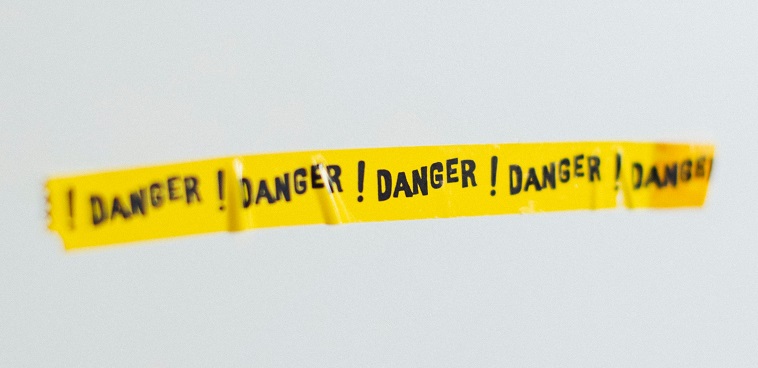Lead Change is a leadership media destination with a unique editorial focus on driving change within organizations, teams, and individuals. Lead Change, a division of Weaving Influence, publishes twice monthly with SmartBrief. Today’s post is by Dr. Steven Hymovitch.
The Victim. The Villain. The Hero. We all know these types, right?
Either we encounter them all the time, have divorced one, two or all three of these characters or have even played the part from time to time. All three mix interpretation as a modus operandi and love to awfulize. These people cannot cultivate their emotional intelligence and get mired in a mood, a way of acting, a mindset, a point of view that not only hampers them but also impinges on the people they deal with in their day.
The Victim
I know we all know the victim too well. I’d say of the three types, the “woe is me,” carrying the weight of the world, always-put-upon mindset is the easiest to cultivate. All you have to do is give up, let things happen to you, shuck off all responsibility and not ever try to consider your place in things or how you might be holding others emotionally hostage around you. The ability to see every situation as a potential negative and take every setback personally is something the victim cultivates to a fine edge.
There is no emotional intelligence being used here, but much other energy to be sure. The victim loves to make things up to suit their needs or alter facts to fit the idea of how terrible the world has always been to them.
The Hero
Here are the people who believe all things are hunky-dory, mainly because they are on the scene. All blame is passed off to others (the hero never makes mistakes and believes others will make things awful), and whatever they assume is going to come to pass will be the best because, well, how could it not? You see these people all the time, the “enough about me, let’s talk about me” folks we all need to avoid like the plague; they are as exhausting to be around, in their own way, as the victim.
Blinded by one’s greatness, one becomes stagnant, never willing to learn or caring to try to. Certainly, the hero would never be interested in cultivating anything beyond that which serve his or her lofty worldview; forget bettering one’s emotional intelligence. “What the hell is that anyway,” the hero would snicker, “and why would I need it?”
And of course, everybody else exists on a level well below the hero’s rankings. There is no room for empathy with this worldview. See how long people will want to be around you or how hard your employees will work for you if you act all high and mighty around them.
The Villain
The last type, the villain, is not one I have seen all that often — luckily. Have you? This is the immortal badass. Much more than just The Hero, this character does what they do, have made the strides they have — or even invited the problems they have had — through a pose, a need to appear tough and dangerous. In the real world, this persona is not easy to keep in place.
More than the Victim, who is exhausting to be around, or the Hero, who is mostly annoying, the Villain could truly throw a monkey wrench into your day. Not psychopathic in a dangerous sense, the Villain moves through the day as much not thinking of anybody but themselves as they invite trouble. They are the ultimate you-know-what stirrer. They sit back and often take delight or consider it a triumph to bring even the people they love discomfort.
Victim, Hero and Villain are always in the middle of the thing, good or bad, and always crying out to be seen, heard or helped.
Like Shakespeare said, “The lady doth protest too much, methinks,” those with stunted emotional intelligence are always the ones talking the loudest for various reasons.
Cultivate your emotional intelligence best you can, and you will be able to recognize manipulation even before it starts.
The overriding aspect of all three types above, the abuse of emotional intelligence, is an inflated ego. And we all know what lies at the center of an inflated ego, as much as what sits at the center of prejudice: fear. A sense of self that is well out of proportion.
Hero, Victim and Villain face their day hell-bent on keeping any opposition out, mainly because any person that is this conceited fears that truly deep down they are not, nor will ever be, as confident as they seem.
I can assure you, you’ll never be able to cultivate emotional intelligence if your head is planted too firmly you-know-where.
A great way to begin cultivating your emotional intelligence is to realize that there are other people around you with their own needs, hopes and dreams. The way to greater awareness in coaching, life and our work is to quell our own ego.
Dr. Steven Hymovitch (Dr. H) is the founder and CEO of Valley Endodontics and Oral Surgery. He’s run 10 successful practices throughout Arizona. He’s co-founder of The Scottsdale Leadership and Coaching Center where he coaches executives, doctors, and dental faculty. His book, “The Dentist Who Gets It, is available now.
If you enjoyed this article, sign up for SmartBrief’s free e-mails on leadership and career development, among SmartBrief’s more than 200 industry-focused newsletters.
